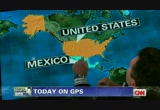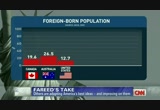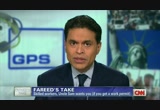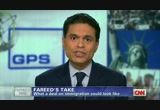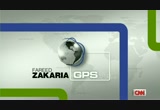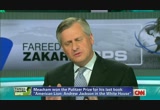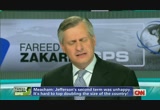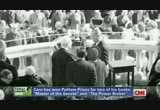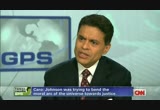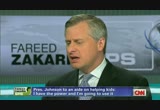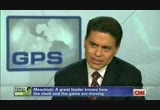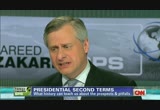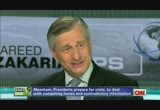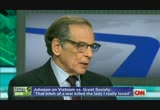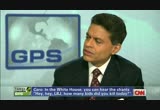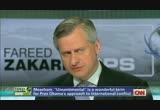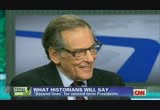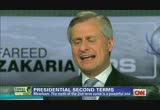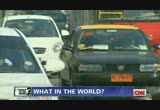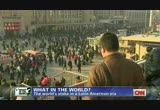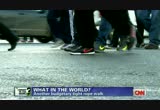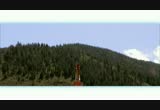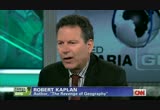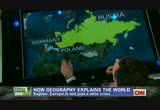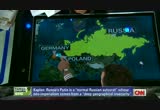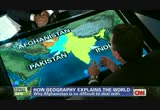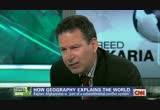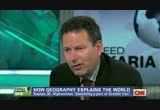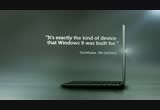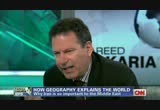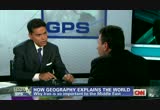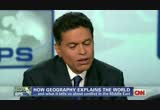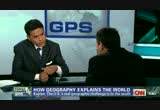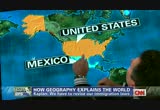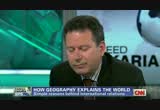tv Fareed Zakaria GPS CNN November 25, 2012 10:00am-11:00am PST
10:00 am
analysis and extras. if you missed any part of today's show, find us on itunes, search state of the union. "fareed zakaria gps" is next for our viewers in the united states. this is gps, the global public square. welcome to all of you in the united states and around the world. i'm fareed zakaria. we have a great show for you. first a rare treat. two great historians on what makes for a successful second term. jon meacham and robert caro talk about their subjects, thomas jefferson, lyndon johnson, and a bit about barack obama as well. then the conflict in gaza yet again reminds us forget about globalization and information revolution. if you want to understand the world, look at geography. nations are still bound by it, says robert kaplan, who uses
10:01 am
maps to show us what to worry about. you won't want to miss this. and the middle class is rising. no, not here in the united states, but right next door in latin america, and it will have huge consequences for the western hemisphere and the world. also, if you thought black friday was crazy, check out the sales in europe. i'll explain. but first here's my take. it's thanksgiving weekend, america. time to reflect on our good fortune. it's also a time that most americans think about the unusual origins of the united states, a land of immigrants. we see o ourselves as special in this way, and we are, except that we're not quite as exceptional as we think anymore. something fascinating has happened over the last two decades. other countries have been transforming themselves into immigrant societies, adopting many of america's best ideas, even improving on them. if you watched our immigration special back in june or read my piece in "time" magazine, you would know that canada and australia both have a higher percentage of people who are
10:02 am
foreign born compared to the united states. in fact, on this dimension, america, which once led the world, looks like most western countries. germany and france, for example, have about the same percent of foreign-born people as america. one important difference is that many of these countries have managed to take in immigrants mostly based on skills, giving a big boost to their economies. it's not as if america doesn't need these people. american companies are struggling to fill 3.6 million job openings, many of them in science-related fields. meanwhile foreign students receive half of their doctorates in foreign fields and most all will head home after graduation. new york city mayor michael bloomberg calls the current immigration problem the single biggest problem facing the
10:03 am
economy and argues that our current approach is national suicide. the good news is we may finally be on the road to a solution. immigration reform has been a taboo topic for the last few years as large and vocal voices within the republican party with considerable public support have blocked any mention of reform. the words they've wanted to hear are border fence and deportation. that's why mitt romney advocated a policy of self-deportation during the presidential campaign. that's why he lost the spanish vote and asian vote to president obama by a landslide. president obama seems emboldened and the republicans chastened. so we have an opening for a deal. what should it look like? well, it should look like a bipartisan bond. that one did not even get to the floor of the house or senate for a vote. the right hated it because it provided a legal path for undocumented workers. the left because it reduced family unification, and the unions opposed the temporary worker provisions. in an earlier era, the fact that the two wings of the party disliked the bill might actually
10:04 am
have made passage easier because the energy was in the center. the passage was in the center. today it's shifted to the wings of the political parties who control their agendas. john mccain the original sponsor of the bill now denounces his own hanley work. -- handiwork. let's hope in the post election atmosphere this dynamic can change and mccain can proudly support his very own bill. let me close by noting i do think america is exceptional. it is the global melding pot, a place where the universal nation is being created. we may not do immigration better than anyone any more, but we do asimulation better than anyone. people from all over the world come to this country and almost magically become real americans but part of being a real american is urging the country to look at its flaws and change them. let's get started.
10:05 am
as president obama readies for a second term, i wondered who could best shed light on the challenges he faces and how to deal with them. the president is an avid student of american history so i thought it was fitting to ask two great pulitzer prize-winning historians to sit down with me. robert caro has written four volumes on biography of johnson. and jon meacham has a new book out on a twice elected president. the book is called "thomas jefferson: the art of power." listen in on my conversation with them. gentlemen, thank you for joining me. >> thank you. >> second term, is there a historical pattern we can learn about second terms? >> well, they tend to end semi-badly, as most things do with history, which i think is one of the -- the key thing to remember. people get tired.
10:06 am
staffers leave. and so you lose some institutional memory. and as the -- second-term presidents and their congresses have two different clocks and the president's clock is now moving toward history and the longer view and he can take more risks. the congressional clock is still going according to the next election. and so the sooner you get things done in second term, the better because more and more the people who are also stakeholders in the system will working toward a different set of imperatives. >> what was thomas jefferson's second term like? >> it was unhappy. >> louisiana purchase. >> louisiana purchase. he had a very good first term. the tensions with britain were enormously important in terms of the -- as ever, the foreign policy of the country, you had domestic and political implications. he had a fairly disastrous economic embargo against britain. my view is that it was the least bad option before him.
10:07 am
jefferson was sometimes seen as an overly dreamy passivist, which i don't think is true. i think he was a pragmatist who didn't think the country was ready for war and so wanted to buy time and get ready. sadly, of course, that would not be the last time we were in a situation where we were unprepared for a foreign challenge. >> bob, the guy you study so carefully probably has the greatest -- the greatest swing in terms of the -- of where his second term started and where it ended. >> yes. >> why do you think that way? what was it like when he -- when johnson was elected. this is -- he had a majority in the house, a majority in the senate, and he was re-elected or elected in a landslide. not really his second term because he didn't have two elections but it was the second term of the kennedy/johnson administration. >> yes. and you feel he had a sens when you're running -- when you're in the second term, you have nothing left to run for except a place in history.
10:08 am
and you feel johnson knows what he wants to do with the country domestically. he starts the war on poverty right at the beginning of that in what you would say his second term. if you say the first years after kennedy. all his life he's wanted to end poverty in america. he starts the war on poverty. he launches so many great society programs, medicare. so the first year, let's say, 1965 or let's say the first seven months, you say, this is a man who's going to leave his mark on history. you know, they say the moral arch bends justly, but it bends slowly. i didn't say that. martin luther king says that. but you really feel that johnson tries to bend it. >> what i was struck by, when you watch some of the old footage, the language johnson used was a kind of language almost no american president had
10:09 am
ever used. it was so full of idealism, it was about ending poverty, lifting up every american, providing everyone with education. it is the most expansive domestic, you know, idealism, that i can recall any president ever having. >> you know, and people working with him could hardly believe it, like richard goodwin who was speech writer for kennedy, then johnson brings him on board, asks him basically about civil rights, you know, and johnson says, you know, referring to the time he was 20 years old and he was teaching the mexican/american kids in a little town in south texas, he says to goodwin, you know, i promised myself then that if ever had the power to help these kids, i was going to do it. he says now i'm going to tell you a secret. i have the power and i'm going to use it. >> i think one thing bob writes so brilliantly about is johnson's appetite.
10:10 am
he was always in a hurry and would also get sick he would drive himself so hard. a slight and at the seedent, jefferson always wanted to project an image of calm. that was part of the equanimity of the time. but one of the things he learned from a failure, johnson learned from teaching those kids, what jefferson learned from being a very unsuccessful wartime governor of virginia was to always seize the opportunity. and that time ran quickly. so when louisiana, when the opportunity came, he did not hesitate. he at first thought he would have to get a constitutional amendment. he didn't think he had the authority to do it. then he got a letter saying napoleon was rethinking it, and suddenly the constitutional scruples went out the window. one of the things that marks great leaders is the ability to know how the clock is moving and how the game is moving. >> the clock is ticking even
10:11 am
outside of vietnam and i want to get to foreign policy challenges later. even as he's trying this great expansion of the great society, there's beginning to be an opposition to it. >> you know what he tells his staff? we have 100 days. johnson has studied power. he's studied in an intuitive way. he understands congress, and he tells his aides as this legislation is being written, hurry up. i've got 100 days. we've got 100 days and then the momentum of my election is going to start running out. >> we're going to talk about foreign policy crises and president obama's style, whether that needs to change, coming right up. [ male announcer ] citi turns 200 this year. in that time there've been some good days.
10:12 am
and some difficult ones. but, through it all, we've persevered, supporting some of the biggest ideas in modern history. so why should our anniversary matter to you? because for 200 years, we've been helping ideas move from ambition to achievement. and the next great idea could be yours. ♪ i am probably going to the gas station about once a month.
10:13 am
last time i was at a gas station was about...i would say... two months ago. i very rarely put gas in my chevy volt. i go to the gas station such a small amount that i forget how to put gas in my car. [ male announcer ] and it's not just these owners giving the volt high praise. volt received the j.d. power and associates appeal award two years in a row. ♪ that's right. so it's like i won. sure. oh my gosh i won!!! i won!!! [ male announcer ] get a $100 walmart gift card when you buy any android or windows 8 smartphone. through december 1st. from america's gift headquarters. walmart. part of a whole new line of tablets from dell. it's changing the conversation. ♪ there's natural gas under my town. it's a game changer. ♪
10:14 am
it means cleaner, cheaper american-made energy. but we've got to be careful how we get it. design the wells to be safe. thousands of jobs. use the most advanced technology to protect our water. billions in the economy. at chevron, if we can't do it right, we won't do it at all. we've got to think long term. we've got to think long term. ♪
10:15 am
at meineke i have options... like oil changes starting at $19.95. my money. my choice. my meineke. we are back with robert caro and jon meacham, two great, great historians. jon, foreign policy crises always spring up. you look at president obama and you think you know what's going to happen, but you can imagine something with iran, something with syria, something with china. >> something with something we don't know. >> something with something. the unknown unknowns as donald rumsfeld would say. >> right. >> is there any way to prepare for them? what does history tell us.
10:16 am
>> no is the short answer, except that you prepare for leadership and hopefully you learn all the way along. i think president kennedy's great example of that. i think the conventional historical wisdom about learning from the bay of pigs and the payoff from the missile crisis is true. he was able to understand that the generals weren't always right and to wait and to always put yourself in the other guy's shoes, which is a hugely important lesson and all these presidents understood. so in a sense you prepare for crisis, you prepare to deal with competing forces, and also incoming and seemingly contradictory information. even in this era where the president of the united states is watching in real time the operation to take out bin laden, even with that, there is a fog of war, there is a fog of
10:17 am
information, and a president is paid to make sure that when he's acting, he's acting on facts. and i think where presidents get in trouble as president bush did, i think particularly in the first term was acting on information -- acting on convictions that were not supported by the data coming in. >> when johnson saw what a foreign policy situation was doing to his great society, did he realize then what you are saying now, which is that the whole great society was buried under the mountain that was called vietnam? >> well, he actually says that. he says this bit -- i forget the exact phrase, but this bitch of a war is going to kill the woman i love, which is this great society. so you have to say, and i have to write about it and figure it out, why exactly did he go. you know, you read the notes of
10:18 am
some of these meetings and you say, oh, all the arguments they're saying here, they're going to de-escalate, but time after time, he makes the decision to escalate until finally, you know, we're up to 586,000. i mean we talk about iraq and afghanistan today. we had 586,000 men in the jungles of vietnam. why is he going forward? you know, in the white house, then pennsylvania avenue, was not cordoned off so the protesters could come right up to the white house gates. you can hear in parts of the white house what they're chanting. they're chanting, hey, hey, lbj, how many kids did you kill today? he can hear it, his wife can hear it, his daughters can hear it, and yet he goes on. it's one of the unyielding terms.
10:19 am
why. you have to say what is the human reason for this? >> and think of obama, jon, as somebody who seems to have that internal discipline not to do that, to kind of send -- throw good money after bad. if you look at iraq, if you look at afghanistan, he's quite unsentimental and is willing to pull back despite the fact this his defense secretary gates, general petraeus, general crystal, were all against the drawdown in iraq. i have a feeling that he has a certain kind of discipline that is going to make him cautious about doing that kind of escalation. >> i think the first term with the exception of the afghan surge would totally support that. >> right. >> i think that -- >> and there as you know what happens is the generals kind of outfox him by leaking to the media that they have made a recommendation -- >> and i think historically the that's the wing thing in the
10:20 am
first term in terms of foreign policy that's going to be problematic so far for him. otherwise, i think unsentimental is a wonderful term for him. i think the drone campaign, i think the steady shift from counterinsurgency to counterterror in afghanistan is hugely important. i think, you know, his approach -- you and i have talked about this before. his approach to iran, which the right wing in merge wants to see as soft, i just -- my sense of him as a person and also based on what he's done on the war on terror is i wouldn't cross him. there's a steeliness there. he's data-driven in the way he's talked about his opponent, this year being so much of fact guy. but i do think that the president has proven his toughness, so he has less to prove in the sense of he does not need to go escalate something in order to prove his manhood. he's done that. and so i think that he has more in common with kennedy probably than johnson in that sense. >> when historians write about
10:21 am
obama, so far i think what we can say is most presidents get two lines written about them. one will be health care and the second would be the line that hasn't been written. it could be a foreign policy thing. i could be he put the united states on stable fiscal footing or, you know. it depends on one's political persuasion in what you think the second line will be. >> you know, you're running for that line. you're running for a place in history. you look at things. don't you think the president in the second term just last to in human terms look at things differently? >> absolutely. i think it's that different clock. i think it's also -- the minute of the second term curse is a powerful one, and, yes, there are many powerful examples. but there's where the president went to geneva and moscow. there's a kind of liberation.
10:22 am
the question is can the liberation of the president be synced up with the constraints of everyone else in the system who do face another election. >> yeah. >> and i think that's -- the greatest politicians are the ones who can make those two things sync up. >> jon meacham, robert caro, pleasure to have you on. >> thank you. up next, "what in the world." societies around the world have become more unequal. the gap between the rich and poor is uneven. one region is bucking that trend and it has important consequences. that story up next. tdd#: 1-800-345-2550 let's talk about your old 401(k). tdd#: 1-800-345-2550 you know, the one that's been lying around. tdd#: 1-800-345-2550 tdd#: 1-800-345-2550 rollover your old 401(k) to a schwab ira, and we'll help you tdd#: 1-800-345-2550 find new ways to make your money work harder. tdd#: 1-800-345-2550 so if you're ready to teach your old 401(k) some new tricks... tdd#: 1-800-345-2550 tdd#: 1-800-345-2550 talk to chuck. tdd#: 1-800-345-2550 rollover your old 401(k)
10:23 am
tdd#: 1-800-345-2550 to a schwab ira tdd#: 1-800-345-2550 and you can receive up to $600. tdd#: 1-800-345-2550 see schwab.com tdd#: 1-800-345-2550 for terms and conditions. tdd#: 1-800-345-2550 call, click or visit tdd#: 1-800-345-2550 to open an account today. good boy. [ male announcer ] you build a reputation by not breaking down. consider the silverado 1500 -- still the most dependable, longest-lasting full-size pickups on the road. and now we've also been recognized for lowest total cost of ownership -- based on important things, like depreciation, fuel, and maintenance costs. and now trade up to get a 2012 chevy silverado all-star edition with a total value of $9,000. from outstanding value to standing the test of time, chevy runs deep. [ nyquil bottle ] just reading your label. wait...you relieve nasal congestion? sure don't you? [ nyquil bottle ] dude! [ female announcer ] tylenol® cold multi-symptom nighttime relieves nasal congestion. nyquil® cold and flu doesn't. gives you 1% cash back on all purchases,
10:24 am
plus a 50% annual bonus. and everyone...but her likes 50% more cash. but i'm upping my game. do you want a candy cane? yes! do you want the puppy? yes! do you want a tricycle? yes! do you want 50 percent more cash? no! ♪ festive. [ male announcer ] the capital one cash rewards card gives you 1% cash back on every purchase plus a 50% annual bonus on the cash you earn. it's the card for people who like more cash. what's in your wallet? [ male announcer ] the way it moves. the way it cleans. everything about the oral-b power brush is simply revolutionary. oral-b power brushes oscillate, rotate and even pulsate to gently loosen and break up that sticky plaque with more brush movements than manual brushes and even up to 50% more than leading sonic technology brushes for a superior clean. oral-b power brushes. go to oralb.com for the latest offers. [ male announcer ] it's that time of year again.
10:25 am
medicare open enrollment. time to compare plans and costs. you don't have to make changes. but it never hurts to see if you can find better coverage, save money, or both. and check out the preventive benefits you get after the health care law. ♪ open enrollment ends december 7th. so now's the time. visit medicare.gov or call 1-800-medicare.
10:27 am
asia and war in gaza, they have been focused on the far east and middle east. let's not forget the surprising developments in the region we share a 2,000-mile border with, latin america. i just read a new world bank report -- yeah, that is what i do in my spare time -- and it has some important findings. between the years 2003 and 2009, nearly 50 million people joined latin america's middle class. that's twice the entire population of the state of texas and the sixth of america's population as a whole. in those six years, the size of the region's middle class expanded by 50%. the proportion of people in poverty fell sharply from 44% to 30%. and as the rest of the world became more unequal, latin america was the only region to decrease the gap between rich and poor. the findings have important consequences locally, but also for the world. when china lifted hundreds of millions of people out of poverty in the 1980s, it set out
10:28 am
on a path toward increased consumption and glowing global clout. is latin america headed the same way? let's take a look. the world bank cites a number of reasons behind the region's rise. 70 million women joined the labor market in recent years contributing to a reduction in extreme poverty. education also boosted opportunity. they spend three years more in school than a decade ago thanks to targeted initiatives. of course, there's been a rise in exports. brazil has enjoyed a rapid growth fueled by a boom in commodities. the question is whether the rise is sustainable. the world bank cautions that class remains a major obstacle to opportunity in latin america. you are likely to spend the same number of years in school as your parents. and simply getting children to school isn't enough. the economist points out that the difference in the quality of
10:29 am
school attended by those at the top and bottom income groups is bigger than anywhere else in the world. the growth of a latin america meddle class is obviously good news but there's reason to worry about its economic future. we recently reported how brazil's growth rate closely tracked the commodity prices. if those prices drop as a result of a slowdown in china and europe as many economists expect, brazil and latin america's growth will stall. that could mean new entrance to the middle class may slip back into poverty. that night to be diversified. the many closed sectors and markets across the region need to open up further and foster competition. but how will these governments raise money? this is where latin america is different from china in the 1980s. too many entitlements and subsidies have been doled out. argentina, for example, has put in place a noncontributing pension scheme, essentially free support for the elderly. what happens when it's time to pay up?
10:30 am
apart from brazil and argentina, taxes are low across the region. how do you increase them. as we all know in the united states, entitlements once given are hard to take back. it's hard to read about those who climbed out of poverty. but latin america faces challenge to sustain these gains, otherwise we could look back on this period as a peak from which it fell. up next we tend to think of international politics as a complicated science. my next guest says it's actually quite simple and it pertains to a subject we've all been taught about in school. i'll explain. all energy development comes with some risk,
10:31 am
but proven technologies allow natural gas producers to supply affordable, cleaner energy, while protecting our environment. across america, these technologies protect air - by monitoring air quality and reducing emissions... ...protect water - through conservation and self-contained recycling systems... ... and protect land - by reducing our footprint and respecting wildlife. america's natural gas... domestic, abundant, clean energy to power our lives...
10:32 am
that's smarter power today. who have used androgel 1%, there's big news. presenting androgel 1.62%. both are used to treat men with low testosterone. androgel 1.62% is from the makers of the number one prescribed testosterone replacement therapy. it raises your testosterone levels, and... is concentrated, so you could use less gel.
10:33 am
and with androgel 1.62%, you can save on your monthly prescription. [ male announcer ] dosing and application sites between these products differ. women and children should avoid contact with application sites. discontinue androgel and call your doctor if you see unexpected signs of early puberty in a child, or, signs in a woman which may include changes in body hair or a large increase in acne, possibly due to accidental exposure. men with breast cancer or who have or might have prostate cancer, and women who are, or may become pregnant or are breast feeding should not use androgel. serious side effects include worsening of an enlarged prostate, possible increased risk of prostate cancer, lower sperm count, swelling of ankles, feet, or body, enlarged or painful breasts, problems breathing during sleep, and blood clots in the legs. tell your doctor about your medical conditions and medications, especially insulin, corticosteroids, or medicines to decrease blood clotting. talk to your doctor today about androgel 1.62% so you can use less gel. log on now to androgeloffer.com and you could pay as little as ten dollars a month for androgel 1.62%. what are you waiting for?
10:34 am
this is big news. we live in a borderless world, where globization and economics are reshaping the way people and countries operate. not quite, says robert kaplan. he's written a book called "the revenge of geography: what the map tells us about coming conflicts and the battle of fate. he joins me now. you have this terrific book out. explain what the premise is. mine i tried to very briefly do it. >> yeah, the premise is that in
10:35 am
all the journals of opinion, all the op-ed pages, it's all about what we can do. we can intervene here. we can change interest rates there. there's human agency. there's nothing human beings can't overcome if only we had the right policy. this book takes the other 50% of reality. it's about constraints. it's about what we cannot do. it is about the parameters in which we have to operate. a good part of those are geographical. >> let's do this practically. let's take a look at a map. you tell me what you see. when we look at europe, we tend to think of this big global economy, a borderless society, and you look at this map and you look at europe and russia. >> yes. europe is not just a debt crisis. we've been narcissistically focusing on a debt crisis.
10:36 am
europe is the western extremity of the eurasian supercontinent, and most changes in europe over the millennium have come from the east. they've come from the influx of peoples throughout the east. and we thought we had defeated that with the end of the cold war, that russia was out of it. but that's not the case. precisely because this belt of countries from estonia to bull -- bulgaria are right next door to russia, russia will continue to be a factor in europe's evolution. if you look at russia, it's half the longitudes of the world but it's got less people than bangladesh. it's been invaded by poles, lithuanians, swedes. french, germans over the centuries, so russia still requires buffer zones in eastern europe and the caucuses. vladimir putin is not the totalitarian evil giant the western union paints him as. his ne-yo imperialism is o impe
10:37 am
his ne-yo imperialism is o imp function of his jeep geographical insecurity. poland, here in blue, may emerge as the real pivot state because, again, there's geography. poland has a lot of shale gas underground. poland may emerge as an energy giant in the 21st century which will give it leverage against germany and russia. >> let's move to the indian subcontinent. why is afghanistan proving so difficult to deal with? why is the u.s. a decade into the war unable to go on patrol with afghans? >> one of the reasons is geographical. if you look at this relief map here, the border between afghanistan and pakistan is very artificial. i've crossed the border many times. every time illegally. and the mountains that descend from the high table land of
10:38 am
central asia to the steamy river valley, it's a very gradual descent. it's the same indo-islamic civilization on both sides of the border. so the sides that the u.s. military and diplomatic corp is going to make two separate well functioning states out of it is somewhat adverse to geology. >> what's really going on, we think there are good guys and bad guys, but there are guys the pakistans supports, the guys that india has supported, the russia has intended -- >> india is a big player here, fareed. because if you look through indian history from the guptas to the mull rans, the moguls, the dynasty, others, what you see is for many periods of indian history or subcontinent history, the same empire that controlled the northern third of india also controlled most of pakistan and half of afghanistan, so afghanistan is not foreign to india. it's part of the sub continental conflict system. so we can leave afghanistan, the u.s. can. but india, you will always have deep equities there and if we
10:39 am
desert afghan precipitously, you might see india moving closer diplomatically to russia in order to contain things there, in order to make sure afghanistan does not become just a radical islamic extension of pakistani isi control. >> so we are on track in the united states to withdraw from afghanistan over the next two years. tell us what -- what emerges as we withdraw. >> what emerges is that iran will have much greater influence in western afghanistan. it's already supplying the western part of the country with electricity. it's becoming a part of greater iran. you'd expect to see greater pakistani influence. remember, groups like the
10:40 am
haqqani group are just -- they're basically like the groups that did trade in earlier times. you know, they're based in the demographic ink blot of pakistan, which, you know, is very populated. and it extends its lines of communications and influence out through the valleys all the way up to soviet -- former soviet central asia. all of them all try to expert -- exert influence there. >> that was a look at how geography plays a crucial role in europe and south asia. when we come back, it gets even more interesting. insights into the middle east and even the united states of america. right back. so it's like i won. sure. oh my gosh i won!!! i won!!! [ male announcer ] get a $100 walmart gift card when you buy any android or windows 8 smartphone. through december 1st. from america's gift headquarters. walmart. part of a whole new line of tablets from dell.
10:41 am
10:42 am
who do you think i am, quicken loans? ♪ at quicken loans, our amazingly useful mortgage calculator app allows you to quickly calculate your mortgage payment based on today's incredibly low interest rates... right from your iphone or android smartphone. one more way quicken loans is engineered to amaze. ♪
10:44 am
10:45 am
citizens in a borderless world. the reality is quite different. listen in and look at these maps. >> all right. now we're going to go -- now we're going to look at the middle east. >> yes. >> and you're going to explain to me why iran really is the pivot of the middle east in your opinion. >> yes. persia wasn't the world's first super power, remember, in antiquity whereas in saudi arabia you have a kingdom ruled by a family that is not synonymous with the arabian peninsula, doesn't include yemen and all these states. it is tenuous. syria is a yugoslav sector with sectarian interests. egypt has geographic asset. libya is a vague geographical expression between aaa ten ya in the northwest that has always been oriented toward greater carthage and tunisia and benghazi and others in the northeast which has been toward alexandria.
10:46 am
iran has always been, because iran is natural as a state, it's developed rich institutions and bureaucracies over the centuries, and therefore it can project power. there will always be an iranian state. syria can collapse, libya can collapse. iran may go through regime change, but they'll always be a strong persian state. >> what does that tell you about u.s. policy toward iran? >> what it tells me is that our grand strategy has to be how do we engage in a dialogue with iran. what is the path toward that. is it fighting a war with them over nuclear weapons? is it not fighting a war with them? but the endgame is a dialogue with what is probably the most significant state in the middle east where we have a lot of interests to discuss. >> so the middle east you're describing is really one where the states that are real and enduring, iran, egypt.
10:47 am
>> tunisia. >> turkey to a certain extent. >> absolutely, turkey, yes. >> those are the six -- >> because they're age-old clusters of civilization with natural borders. countries like algeria, libya, syria, libya, jordan, were never really thought of until states until the 20th century. >> someone once described them as tribes with flags. >> yes. and i would include saudi arabia. yemen is a mixed bag. yemen is an age old cluster of civilization, however, it's had six or seven empires within it through history because of the way it is divided by mountains and prison valleys. even the turks and the british though they nominally controlled yemen were never able to spread their influence deep into the interior. >> all right. let's look at place where we should know more about the
10:48 am
geography, but we don't, which is mexico and the united states. >> yes. >> when you look at this map, what do you see. >> what i see is that the united states is a virtual island. atlantic, pacific, canadian arctic to the north, canada is just a thin band of middle class civilization. 33 million people living within a hundred miles of the u.s. border. the united states' real geographic challenge is to the south where much of the border is artificial. where south of the border, you have a country that's so much poorer than the u.s. that the difference in living standards is one of the greatest in the world, you know, except for maybe that between north and south korea. mexico is a country with a much higher rate of population growth. the afternoon mexican in his mid-20s, average american in his late 30s.
10:49 am
demographically moving north. that's the real drama going on in the united states. >> but you said something which i thought was interesting. a weak and artificial border between the u.s. and mexico. >> well, there's the rio grande during part of it. it's very narrow actually. and here, these were just lines drawn in the sand. remember. you have an artificial border between a very well developed civilization and one that's relatively less developed. it doesn't stay static. the border situation will always evolve in the weaker society's favor because the weaker society will eventually overcome the stronger one through immigration, through just population movements. and so the fate of mexico is as important to the u.s. as u.s. bilateral relations with china as whatever happens in the greater middle east. it's on the same category of importance. >> what should we do? >> what we should do is first of all we have to revise our immigration laws. you know, that's number one. number two.
10:50 am
our top policy makers have to spend more time on the problem. to think of more creative ways to help the mexicans. it's a very dynamic economy. it's become one of the top so. on the other hand, the northern third of it is increasingly controlled by drug cartels. 50,000 people have been killed in mexico since 2006, and the reason the violence rate has dropped recently is only because the cartels are consolidating their agr their geographic hold. so we have to think of more creative ways to help the mexicans, because our history with mexico and invading it as such is their sense is articulate. so it has to be very, very subtle. our policymakers care about mexico, but they're relegated to the northeast coast to a minor problem.
10:51 am
what i'm arguing in this book is it's a major problem. >> you're saying if we don't help mexico essentially come up to roughly the standards -- >> that's the goal, to make mexico as rich as we are. >> because otherwise -- >> right. it's not like we can save mexico, mexico can help itself, but there are things we can do. >> robert kaplan, a pleasure as always. >> thank you, fareed. >> and we will be right back. ♪ [ male announcer ] are you on medicare?
10:52 am
do you have the coverage you need? open enrollment ends friday, december 7th. so don't wait. now's the time to get on a path that could be right for you... with unitedhealthcare medicare solutions. call today to learn about the kinds of coverage we offer, including aarp medicarecomplete plans insured through unitedhealthcare. these medicare advantage plans can combine parts a and b, your hospital and doctor coverage... with part d prescription drug coverage, and extra benefits... all in one complete plan... for a $0 monthly premium. no more than what you already pay for medicare part b. unitedhealthcare doesn't stop there. we'll cover 100% of your preventive services... like an annual physical and immunizations... and you'll have the flexibility to change doctors within one of the nation's largest networks, dedicated to helping you live a healthier life.
10:53 am
other benefits can include vision and hearing coverage -- and the pharmacy saver program gives you access to prescriptions as low as $2... at thousands of pharmacies across the country, in retail locations like these. ♪ call to enroll today and enjoy these benefits... for a $0 monthly premium. most plans also include part d prescription drug coverage. your healthcare needs are unique. that's why, with over 30 years of medicare experience, we're here to guide you every step of the way. open enrollment ends december 7th. so don't wait. if you're medicare eligible, call now... and talk to unitedhealthcare about our plans, like aarp medicarecomplete. let's get you on the right path. call today. ♪
10:56 am
gaza. that brings me to my question of the week. what is hamas an acronym for when translated from arabic? the army of the righteous, islamic society of gaza, the army against infidels or islamic resistance movement. stay tuned and we'll give you the answer. remember, if you miss a show go to itunes.com/fareed. you can get the audio podcast for free or buy the video version. this week's book is "thomas jefferson, the art of power" by my guest today, john meacham. meacham takes thomas jefferson off his pedestal and presents him as the politician that he was, artful, ruthless, manipulative. it describes him as a politician, not a saint.
10:57 am
and our last look. judging by the buying spree on black friday, i think it's fair to say the u.s. economy is moving forward. but the eurozone is officially in a double dip recession and, therefore, is a victim of falling tax revenues. so governments need to find new sources of revenue. what to do? sell stuff. in italy, they were selling everything but the church. now they are selling the church, sort of. for about $125,000, you can have your name engraved on one of the 135 splendid spires of milan's cathedral. if you've had your eye on that beach house or this home in barcelona, $200,000 or more to buy in the country, residency
10:58 am
will come gratis. the plan is for citizenship and an eu passport to be given to anyone who buys hungarian bonds worth $325,000 or more. an eu passport. they are putting black friday to shame. the correct answer to our gps challenge question is d, hamas stands for the islamic resistance movement. in its early years, israeli intelligence tolerated and even encouraged hamas because they saw it as a counterweight to the real enemy, the palestinian organization legislation. today libya battles it and they rate it fto, foreign terrorist organization. another group is responsible for the mumbai terrorist attacks in 2008. these attacks are the focus of a documentary i was proud to be a part of. it's called "terror in mumbai." it was originally done for hbo,
10:59 am
but it will air sunday night right here on cnn, 9:00 p.m. eastern and pacific. don't miss it. thanks for being part of our program this week. i'll see you next week. hello, everyone. i'm fredricka whitfield with a look at your top stories. a new violence has broken out in egypt for those who favor morsi's unchecked hours. demonstrators say they'll protest until morsi resinds his dekr decree. and tomorrow they will hammer out the details of the cease-fire with hamas. israel says a delegation with gaza has arrived in cairo. fiscal cliff negotiations kick off this week. today two more republicans who previously refused to consider tax hikes are
322 Views
IN COLLECTIONS
CNN (San Francisco) Television Archive
Television Archive  Television Archive News Search Service
Television Archive News Search Service  The Chin Grimes TV News Archive
The Chin Grimes TV News Archive 
Uploaded by TV Archive on

 Live Music Archive
Live Music Archive Librivox Free Audio
Librivox Free Audio Metropolitan Museum
Metropolitan Museum Cleveland Museum of Art
Cleveland Museum of Art Internet Arcade
Internet Arcade Console Living Room
Console Living Room Books to Borrow
Books to Borrow Open Library
Open Library TV News
TV News Understanding 9/11
Understanding 9/11
